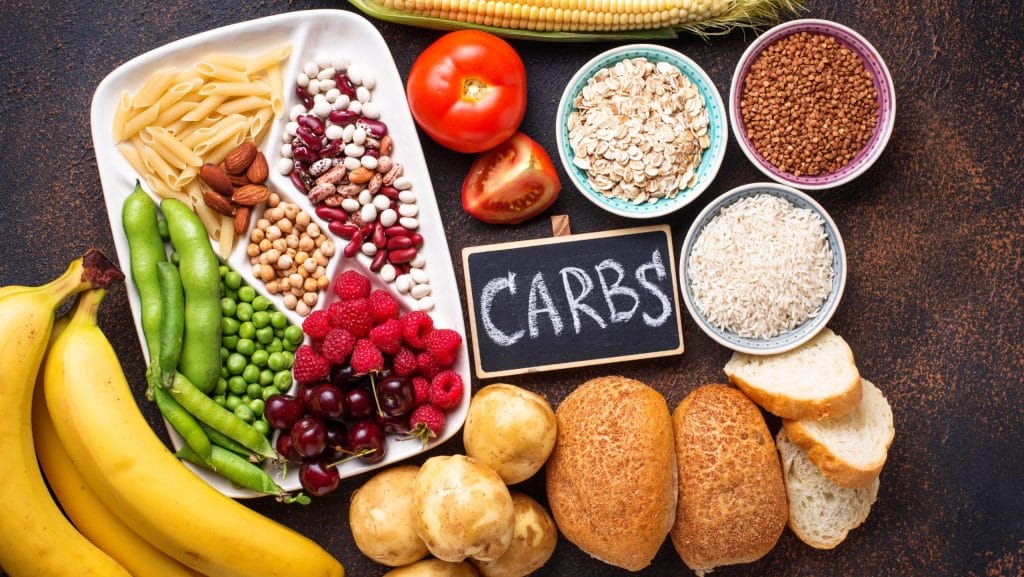
Carbohydrates provide the primary source of energy that fuels our daily activities. Understanding the various categories of carbohydrates and their nutritional roles can empower you to make informed choices for a balanced and energy-packed lifestyle.
Categories of Carbohydrates:
- Fruits: Bursting with natural sugars, vitamins, and fiber, fruits are a delicious and nutritious source of carbohydrates.
- Starchy Foods: Grains, legumes, and flours fall into this category, offering complex carbohydrates that provide sustained energy.
- Milk & Yogurt: Dairy products contribute lactose, a natural sugar, along with essential nutrients like calcium and protein.
- Refined Sugar: Found in sweets and processed foods, refined sugar offers a quick energy boost but lacks the nutritional benefits of whole foods.
Nutritional Role of Carbohydrates:
Main Energy Source:
- Carbohydrates are the body’s primary source of energy, providing fuel for our daily activities. When we consume carbohydrates, they are broken down into glucose, a type of sugar that acts as a powerhouse for our cells. Imagine glucose as the premium fuel that keeps the engine of your body running smoothly.
Impacts Blood Sugar:
- The glycemic index (GI) is a tool that categorizes carbohydrates based on how quickly they cause blood sugar to rise. Foods with a high GI, like refined sugars and white bread, can lead to rapid spikes, while low-GI foods, such as whole grains and legumes, release glucose more gradually. Glycemic control is the delicate balance of managing blood sugar levels to prevent spikes and crashes.Consuming high-GI foods can result in a rapid increase in blood sugar levels, causing a surge of energy followed by a crash. This rollercoaster ride can lead to cravings, fatigue, and irritability. On the other hand, opting for low-GI options helps maintain steady blood sugar levels, promoting sustained energy and preventing those mid-afternoon slumps.
Spread Out Intake:
-
- Balancing your carbohydrate intake throughout the day is crucial for optimal glycemic control. Instead of loading up on carbs in one sitting, distribute them evenly across meals and snacks. This approach helps your body manage glucose more efficiently, avoiding sudden spikes or crashes.
Smart Carb Choices:
-
- Making intelligent carbohydrate choices is the key to glycemic control. Choose complex carbohydrates, such as whole grains, legumes, and fruits, which contain fiber. Fiber slows down the digestion and absorption of glucose, preventing sudden spikes. Additionally, pairing carbohydrates with proteins and healthy fats can further stabilize blood sugar levels.

Understanding Fiber:
Soluble Fiber:
- Manages blood sugar levels, lowers cholesterol, and promotes a feeling of fullness, aiding in weight management. Soluble fiber dissolves in water, forming a gel-like substance which can promote bowel regularity.
- Found in oats, barley, beans, lentils, fruits (especially apples and citrus fruits).
Insoluble Fiber:
- Prevents constipation by adding bulk to the stool, supports digestive health, and may reduce the risk of certain diseases, such as colorectal cancer.
- Found in Whole wheat, brown rice, nuts, seeds, vegetables (especially broccoli and carrots).
In conclusion, carbohydrates play a crucial role in maintaining overall health and well-being. By embracing a diverse range of whole, fiber-rich foods, and understanding the nuances of different carbohydrate categories, you can harness the nutritional power of carbohydrates for sustained energy, digestive health, and overall vitality.
Written by Prabha Honrath, RDN
